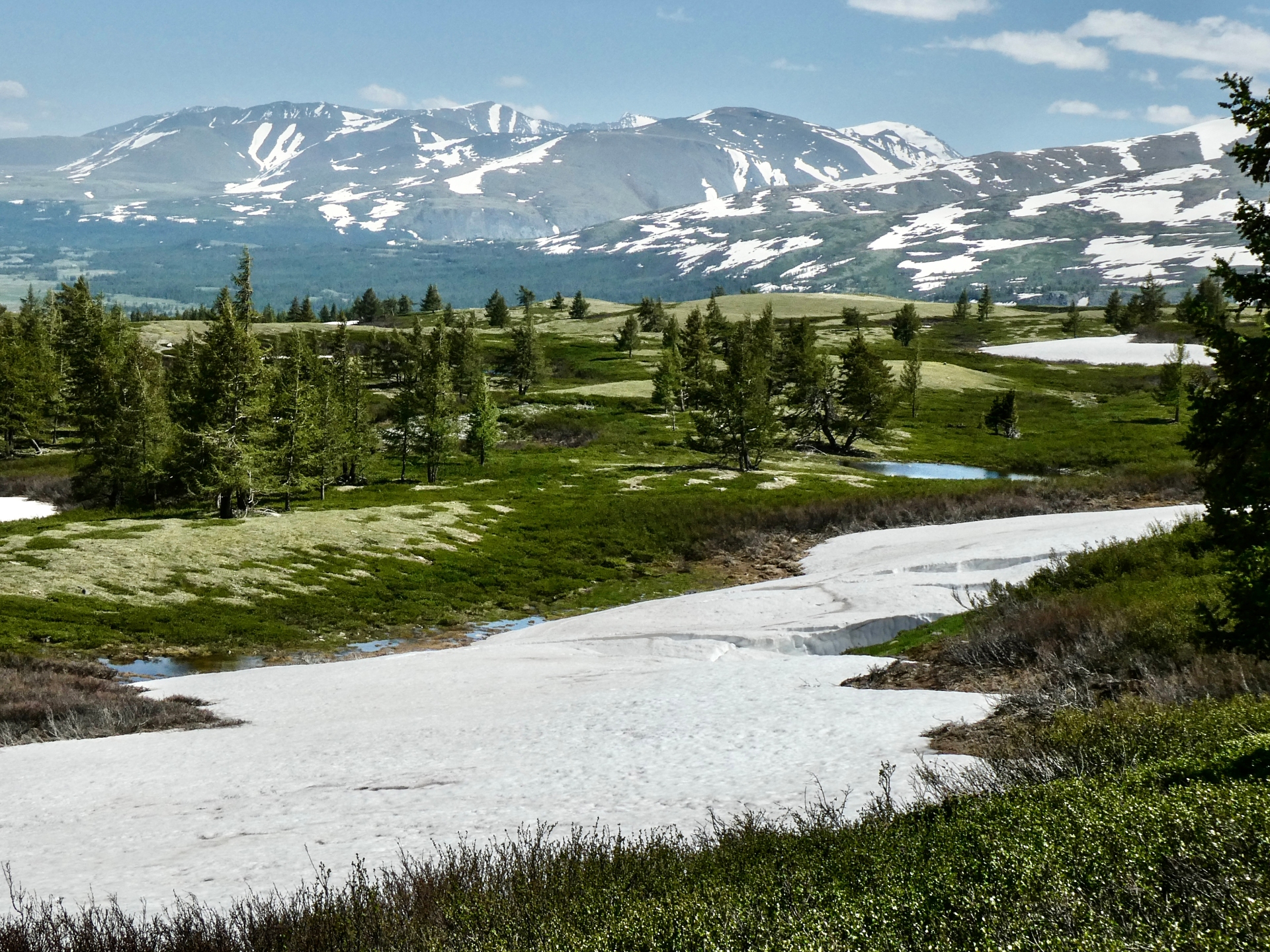Altai, Western Mongolia – Mendei Berdimurat pulls on the reins of his horse and looks up from beneath the rim of a worn-out flat cap on his head.
The 52-year-old from Saksai in the Altai mountain range in west Mongolia has been a herder all his life. But this year he is worried.
“The lakes should have melted by now. This is June. But seeing it still frozen shows how bad the winter has been,” he says.
Mongolia’s harsh winters are lasting longer each year – bleeding into the summer months – and threatening the survival of nomadic communities who make up one-third of the country’s population of three million.
The extreme weather and the severity of climate change are also having a detrimental effect on food security and income, according to the United Nations.
Berdimurat, who is making his annual 150km migration with his livestock from his winter camp to the summer pastures, looks weary.
“I lost more than 60 animals …” he says. “It is a lot of money to lose.” His herd comprises about 100 animals: yaks, cows, sheep, goats and horses; many are malnourished and look weak.
For most nomads, their wealth is held in their livestock. Since January, more than 483,000 livestock have died from starvation, freezing or disease, according to Mongolia’s Ministry of Food, Agriculture and Light Industry.
Serikgul Askerhan, a wife of a herder in her 30s, says her family lost half of their sheep and goats plus 10 yaks this winter. In a simple wood cabin within the national park of Altai Tavan Bogd, 100km from Berdimurat and his herd, she serves Kazakh milk tea and homemade yoghurt and cheese.
Coming in from the cold, Askerhan’s 70-year-old mother-in-law who they call Äje (grandmother in Kazakh) rubs her hands together to warm them. She has lived through many difficult winters, but says this year was unusual because the snow never stopped.
“Usually it will snow and then we have a few days where it stops. January is the coldest month. But the snow came again in March and kept snowing until after April … Now in the middle of June places are still frozen. I have never seen this in all my life.”
The Mongolian government tried to collect and bury the dead animals this winter but the landscape – vast, open mountainous terrain that stretches as far as the eye can see – remains dotted with half-eaten, decayed carcasses now being exposed from the deep thaw.
This year, temperatures plummeted to below minus 40 degrees Celsius (-40 degrees Fahrenheit) in some provinces. Relief agencies have been trying to support nomadic communities but many live in hard-to-reach areas.
Last summer 50 percent of the territories in the west and south saw hay yields decline from the severe drought and there was a deterioration of pasture from overgrazing and insufficient reserves for livestock production. When winter hit, the nomads were ill-prepared. The frozen lakes in Altai are now beginning to melt and flooding is the next problem they face – as it cuts off key access routes and makes migration harder and riskier.
“Mongolia is highly vulnerable to climate change, experiencing warm temperatures, at almost three times the rate of the global average in the last 70 years,” Tapan Mishra, the UN’s resident coordinator for Mongolia, said in a March report.
About 80 percent of rural households in Mongolia are at risk of losing their livelihoods, Mishra added, due to unfavourable weather conditions, insufficient reserves for livestock production and the economic crisis’s effect on fuel and food supplies.
In his home within Altai Tavan Bogd national park, Ajken Tabysbek, a retired 80-year-old herder, sits holding a bowl of stewed minced mutton. His two sons now herd the family’s livestock.
He says in his lifetime he has never witnessed a winter like this. “There was so much snow, and since February it didn’t stop. It meant there was no grass to graze the animals.”
“Is this climate change? He asks. “I don’t know, but I know that the winters are not the same. There is definite change.”
Sumber: www.aljazeera.com
 Skip to content
Skip to content

